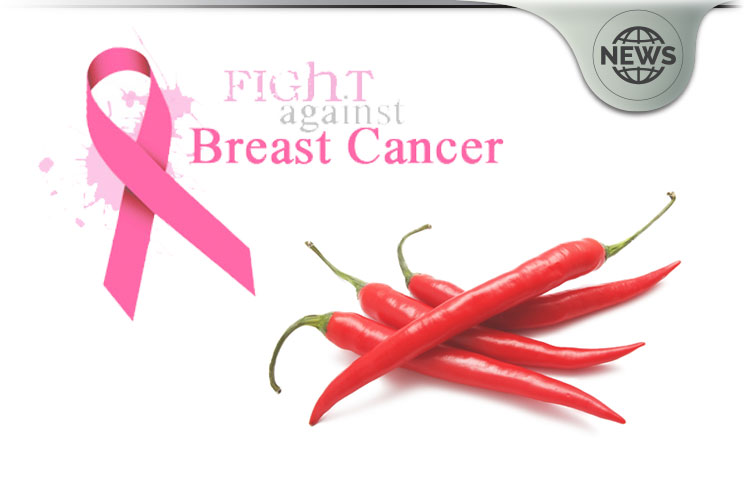There was exciting news from the world of breast cancer research today as it was revealed that capsaicin, an ingredient in chili peppers, can halt and even kill breast cancer cells within the body.
Researchers also believe that capsaicin may have this effect on other cancels as well.
This latest study shows that capsaicin is one of the few things proven to slow down one aggressive type of breast cancer called triple-negative breast cancer. That type of breast cancer is particularly aggressive and difficult to treat. Capsaicin, however, may be able to slow it down.
What is Triple-Negative Breast Cancer?
Triple-negative breast cancer is one of four subtypes of breast cancer. New genetic research allows scientists to classify breast cancer into different subtypes according to the presence of genetic markers.
Breast cancers that have the genetic marker HER2 respond well to conventional treatment, as do breast cancers with the genetic markers estrogen and progesterone. However, some breast cancers are negative for all three markers – which is how triple-negative breast cancer got its name.
Triple-negative breast cancer is typically the hardest breast cancer to treat, as chemotherapy is the only option. That’s why this latest capsaicin research is being seen as such a major breakthrough.
Thanks to this latest research from the Ruhr University in Germany, we know that the spicy molecule capsaicin appears to affect breast cancer cells.
The study is titled, “Expression and Functionality of TRPV1 in Breast Cancer Cells”. It was published in the December 2016 issue of Breast Cancer: Targets and Therapy.
How Capsaicin Works
Capsaicin is a molecule found in chili or pepper. It’s the same molecule that gives the chili its spice.
In this latest study, researchers tested the molecule on a triple-negative breast cancer cell culture. Researchers were encouraged by existing research that showed capsaicin induced cell death and inhibited cancer cell growth on several other types of cancer, including colon and pancreatic cancer.
After introducing capsaicin to the breast cancer cells, researchers found that capsaicin activated the olfactory receptor (TRPV1 receptor) in the cell culture. Medical News Today can explain what happens next better than I can:
“As a result of TRPV1 being activated, the cancer cells died more slowly. Additionally, tumor cells died in larger numbers, and the remaining ones were not able to move as quickly as before. This suggests that their ability to metastasize was reduced.”
In other words, the progress of cancer was inhibited, with some cells dying out in larger numbers.
You Can’t Eat Enough Chili Peppers to Get a Sufficient Amount of Capsaicin
Now here’s the bad news: don’t go rushing out to the grocery store to buy chili peppers just yet. Researchers cautioned that the amount of capsaicin you would get through food or inhaled sources is insufficient to treat triple-negative cancer.
Even if you did eat thousands of chili peppers, you would find the effects aren’t the same. Researchers explained that the benefits are “not effective when eaten”.
However, they did say specially-designed drugs might help – like drugs that turn on the same TRPV1 receptor.
Researchers described this approach as “a new treatment approach for this type of cancer”.
One such drug is already on the market. The drug arvanil was shown to effectively treat brain tumors in mice. That drug has a chemical makeup similar to capsaicin, and has been proven to reduce tumor growth in rodents. Nevertheless, arvanil is not suitable for human use because of its side effects.
Ultimately, some claim that this latest capsaicin research is one of the most significant discoveries in the fight against cancer: not just breast cancer, but also colon, bone, and pancreatic cancer. Stay tuned to learn what kind of effects capsaicin will have on cancer treatment moving forward.









